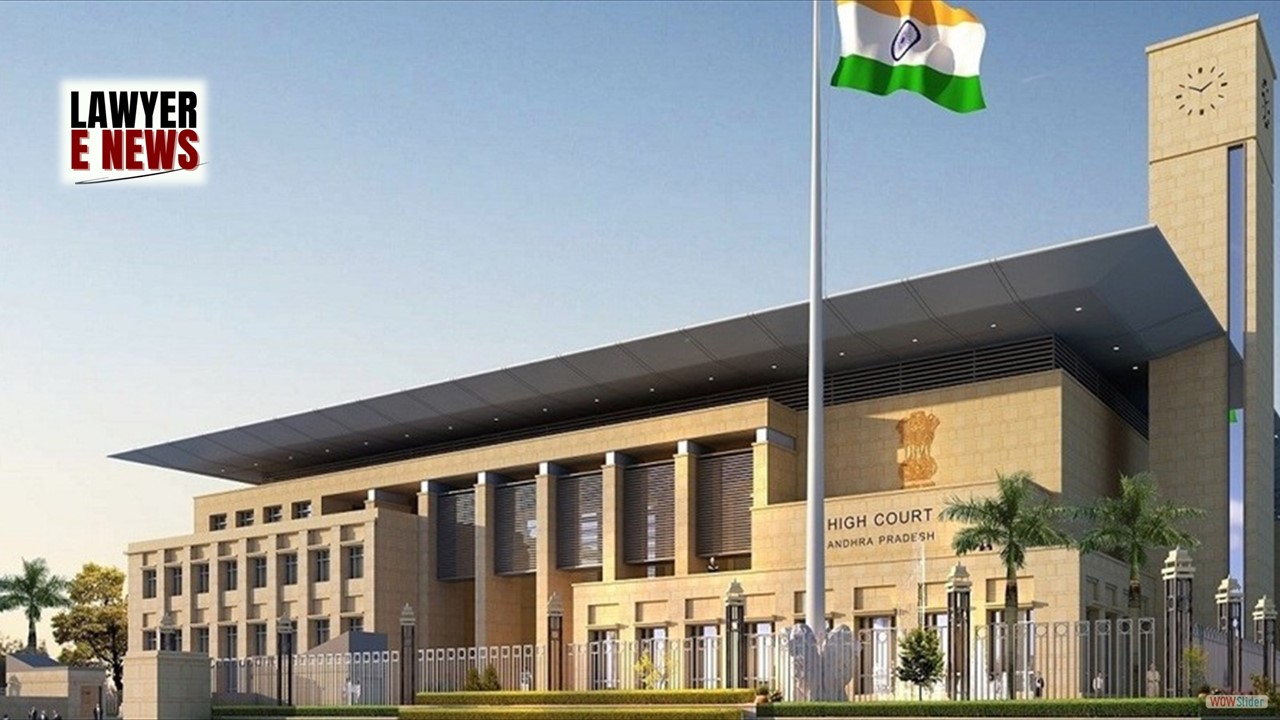-
by Admin
15 February 2026 5:01 PM



Andhra Pradesh High Court formally concluded the 66-year-old litigation involving the partition of the Matruka properties of Asman Jahi Paigah, holding that the properties under items 230 to 254 of Schedule 'A' were not restored or released by the Revenue Department and therefore were not available for partition.
The Court dismissed the applications seeking final decrees in relation to these properties while granting liberty to the applicants to pursue remedies available under law. It directed the drafting of a final decree limited to items 1 to 229 of Schedule 'A' and other relevant schedules.
“No Property Is Available for Partition in Items 230 to 254”
The Court emphasized: "In the absence of preliminary decree for item Nos. 230 to 254 in Schedule ‘A,’ no final decree could have been passed. Therefore, earlier reports filed, without proper verification, are fictitious and are treated as nullity."
It clarified that Makta lands (items 230 to 254) listed in Schedule 'A' of the preliminary decree passed in 1959 were expressly excluded from partition unless restored or released in favor of Paigah Asman Jahi. The Revenue Department has not restored these properties, rendering them unavailable for partition.
The litigation stems from a partition suit filed in 1953 by Smt. Sultana Jahan Begum, daughter of Nawab Moinuddowla Bahadur, for the division of Matruka properties of the Asman Jahi Paigah estate. The case was transferred to the High Court in 1958 and numbered C.S. No. 7 of 1958.
A preliminary decree was passed on April 6, 1959, based on a compromise between the parties. The decree excluded items 230 to 254 of Schedule 'A' (Makta lands), stating that they were under litigation with the Revenue Department and could only be partitioned upon their release or restoration.
Over the years, several reports were filed by Court-appointed Receivers regarding the division of other properties. However, disputes persisted concerning the Makta lands under items 230 to 254, leading to protracted litigation.
The Court evaluated the validity of earlier final decrees and reports concerning these properties.
The Court noted that the Makta lands were excluded under the 1959 preliminary decree unless restored or released by the Revenue Department, which had not occurred. Consequently, these properties could not be included in the partition proceedings.
The Court clarified that the role of Receivers is limited to dividing properties in accordance with the preliminary decree. Receivers cannot adjudicate on title or determine the availability of properties beyond the scope of the decree.
Earlier final decrees and reports concerning items 230 to 254 were deemed invalid, as they were passed without proper verification or evidence of restoration.
The Court formally closed C.S. No. 7 of 1958, stating that it would not entertain further applications regarding items 230 to 254 of Schedule 'A.'
The High Court directed the drafting of a final decree limited to items 1 to 229 of Schedule 'A' and other relevant schedules.
Applications for final decrees concerning item 252 (Makta Shamshiguda) were dismissed. The Court, however, granted liberty to the applicants to seek appropriate remedies under law.
The Court discharged the Receivers appointed for the case, acknowledging their contribution but reiterating that their scope was limited.
Relying on Shree Ram Urban Infrastructure Ltd. v. Court Receiver, High Court of Bombay, (2015) 5 SCC 539, the Court observed:
"A Receiver acts as custodia legis and must function within the boundaries of the preliminary decree. The Receiver's role is limited to the division and management of properties, not to adjudicate title or determine the availability of properties."
The Court reiterated that fraud vitiates all proceedings and nullifies final decrees obtained without proper verification, as held in Jagmittar Sain Bhagat v. Director, Health Services, Haryana, (2013) 10 SCC 136.
The judgment is significant as it resolves a six-decade-old legal dispute over the partition of the Matruka properties of the Asman Jahi Paigah estate. By restricting the final decree to items 1 to 229 of Schedule 'A,' the Court has provided clarity on the scope of the preliminary decree and the role of Receivers in partition suits.
Date of Decision: January 9, 2025
